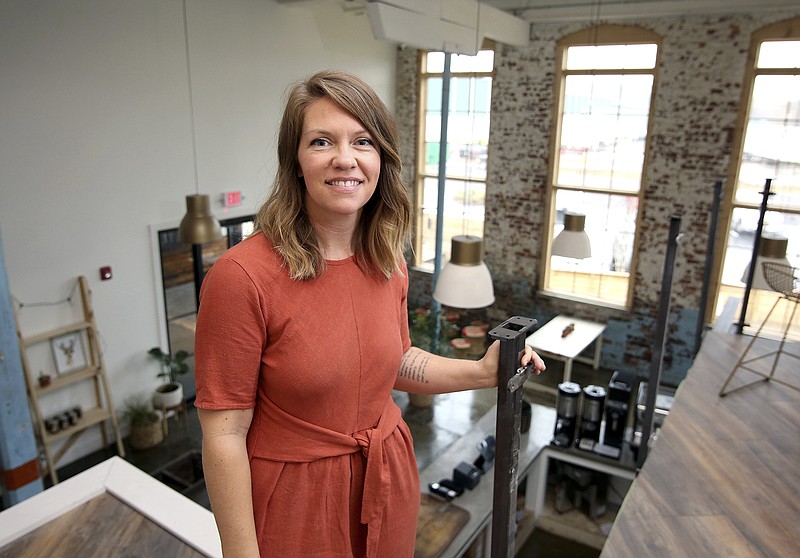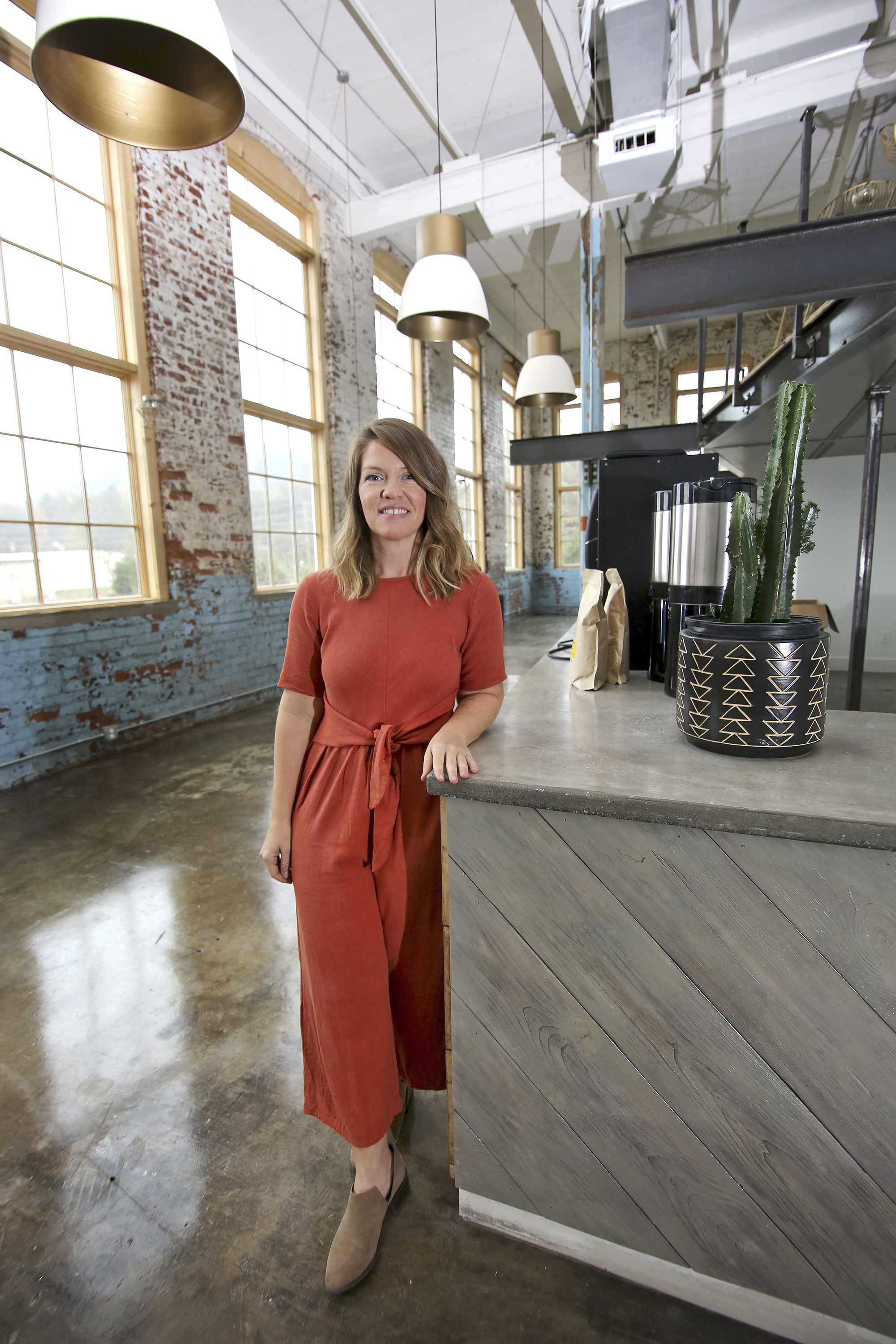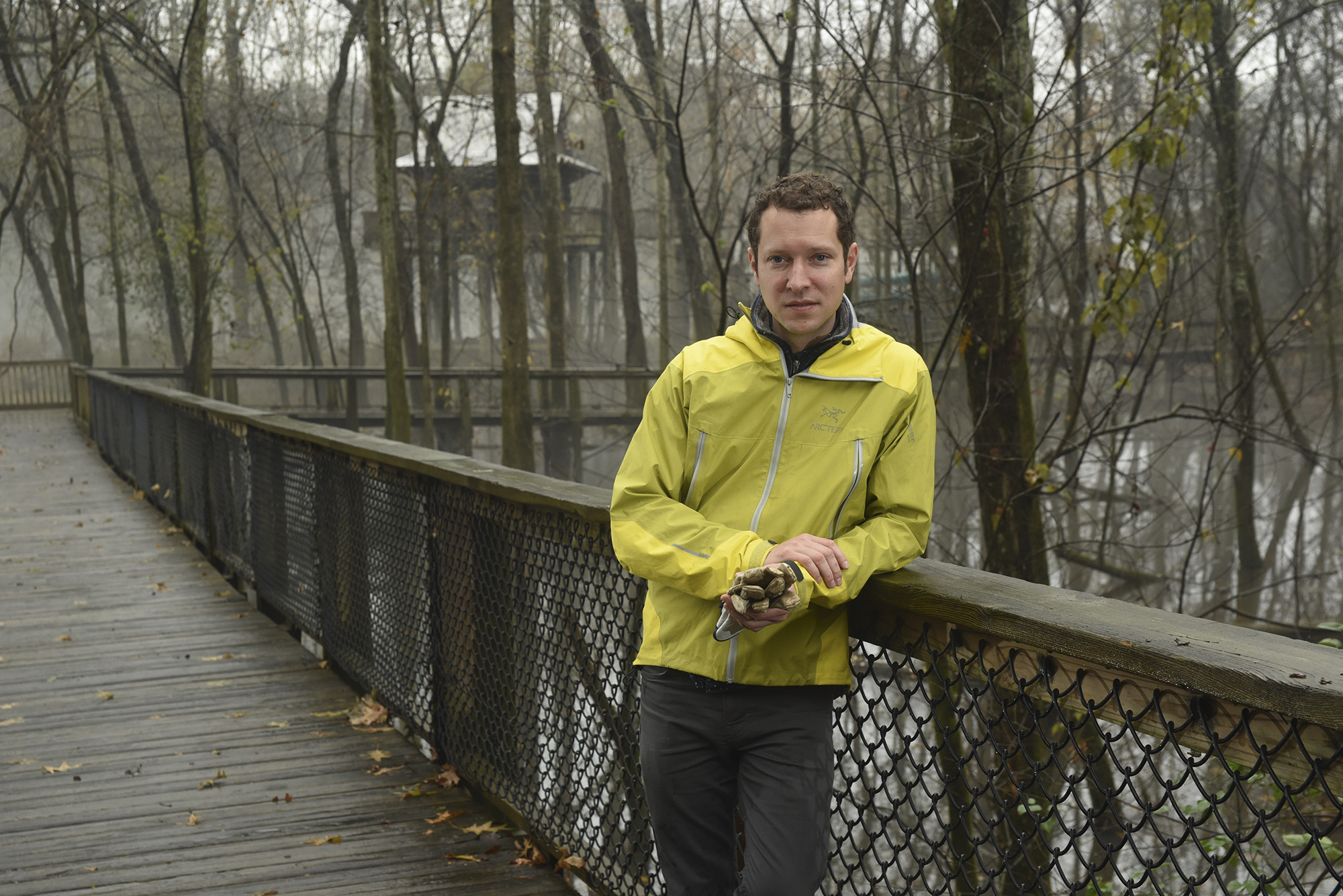Ten years ago, while at a church service in Nashville, a man told Michelle Thompson, "God is going to start sending you balloons."
Thompson assumed it was a metaphorical prophecy - until she started to see balloons everywhere: stuck in the shrub in her front yard, in trees alongside the highway, rolling down the street.
These balloons, she decided, were blessings, and 2018 was filled with them.
"God blessed my life. But serendipity doesn't happen by itself. I had to start paying attention," says Thompson, now a Dalton, Georgia, transplant.
She was not alone in her good fortune last year. Here, three locals share stories from their best year ever - which is not to say that it was easy. Quite the opposite, in fact. But through perseverance, they each learned that happiness is like an untethered balloon. Sometimes, it appears in unexpected places.
MICHELLE THOMPSON
In late 2017, Michelle Thompson was approached by her friend, Dustin Coker, with a business proposal.
"I want to open a cafe," Coker told her. "I will fund it and I will give you a third. All you have to give is your time."
"I'm dreaming, right?" Thompson had thought. Her lifelong dream, after all, was to own a cafe. "I always thought that if I worked really hard, someday I could own a place - probably in retirement," says Thompson, 39.
She asked Coker for 72 hours to reflect on his offer. "I needed to process the goodness," she says. The opportunity felt surreal, especially following that year.
Until that point, 2017 had gone from stressful to downright depressing.
First, a tornado had swept through her Dalton, Georgia, neighborhood, toppling the 150-year-old oak tree in her backyard and barely missing her home. She had been laid off as a staff writer for a national consulting firm. Then, her beloved 15-year-old spaniel, Lucy, had died.
"It was the year from hell," says Thompson.
She decided to start a journal.
"In my life, God is a real and governing presence," Thompson says. "So I decided I was going to write down everything I thought God was saying to my heart, even if it sounded stupid or crazy."
Like the number "820," for example, which appeared to her often.
"I'd go to check the time on my phone and it'd be 8:20. Then the phone would reload and it would actually be, like, 45 minutes later. Reoccurences like that kept happening," says Thompson, who believed it was more than a coincidence.
"I believe we have a great ability to be in communication with God outside of the traditional box," she says.
Besides, she had always been intrigued by numerology. She knew the number eight meant new beginnings and the number 20 represented a season of expectancy - a season which Thompson was ready to move past. She was ready for that new beginning. So in her journal she wrote, "You're moving to 821."
A few months later, Thompson says God spoke to her again.
"I heard a voice in my head, like this thought out of nowhere, and it said, 'You're moving back to Chattanooga.'"
Again, she wrote it in her journal.
But her misfortune continued. In October, after six months of rigorous training for Chattajack, a 31-mile paddle race along the Tennessee River, Thompson fell into the river moments before its start. She became pre-hypothermic and had to drop out. The next day, she discovered her colony of bees had died in an early frost.
"I started to wonder if I was crazy writing all this stuff down while it's the shittiest year of my life," she admits.
But at the end of the year, Coker approached Thompson with his proposal. His idea was to open a space, part coffee shop and part restaurant, offering light dishes and trendy beverages, from tea lattes to craft cocktails. He would fund its startup, then split ownership with Thompson, another friend, Miriam Hash, and himself. The restaurant, which they would call Native Kitchen, would open in Dalton's recently renovated shopping space, The Mill at Crown Garden. Throughout the early 1900s, it had been one of the state's first cotton mills, where Thompson's grandfather had worked.
"Literally, my grandfather's sweat is in that building," she says.
But the real kismet moment happened when Thompson received the invitation for the space's open house and saw her future restaurant's address: 821 Chattanooga Ave. Finally, 2018 brought her that new beginning. She and her business partners spent the year researching, designing and building Native Kitchen, slated to open this spring.
"God blessed my life," Thompson says. "But I also made a lot of the right decisions. I paid attention to this dance we have with God."
SETH RUHLING
Seth Ruhling's goal was always to be a professional triathlete.
"I liked riding my bike, I like running. Triathlons seemed cool," says the 24-year-old Chattanooga native.
In order to qualify to race professionally, a person must be a top finisher in one of the triathlon events sanctioned by USA Triathlon, the governing body of American triathlons - Ironman, for example.
"Basically, being 'professional' just means you get to race for money," Ruhling says.
After graduating from Lee University in 2014, Ruhling committed to his goal. He hired a trainer. He woke every day at 5:30 a.m. to swim laps or run. Then, he'd go to work at Fast Break Athletics, a local store aimed at runners. After his shift or on his days off, Ruhling would ride his bike.
"I was training about 20 hours a week. I'm not inherently a good swimmer, so I had to put in a ton of swim time. It was a lot of work. I wasn't getting where I wanted to be and I wasn't enjoying it," he says.
Still, Ruhling pushed on. In April 2017, he competed in Florida's half Ironman, which comprised a 1.2-mile swim, a 13.1-mile run and a 56-mile bike ride. But that event was just a warm-up. That September, he competed in Chattanooga's half Ironman world championships with the goal to qualify as a professional.
"I performed so poorly. At everything," Ruhling says of that race. "My head wasn't in the game. All three of those sports are supposed to be fun, but I was taking it all too seriously. I was over it. I quit triathlons and decided to just ride my bike."
Ruhling continued to work with his trainer, though, thinking he might one day compete in bike races. But this time, he committed to keeping it fun.
"If I didn't feel like riding one day, I just didn't. I'd go climbing or I'd hang out with my girlfriend instead. I got a better head on my shoulders and was enjoying life again," Ruhling says.
That's when he decided to try another triathlon, and signed up for Chattanooga's half Ironman taking place in May 2018.
"Between September [2017] and the middle of February [2018], I legitimately did not swim at all and ran only a handful of times," Ruhling says.
In April, he traveled to Florida to again try the half Ironman. He took third place in his age division. That May, in Chattanooga's half Ironman, Ruhling took first place, thus qualifying him to become a professional triathlete.
"Going professional has relieved so much of the pressure. It's given me more confidence to tell myself, 'It's OK you missed a workout. You raced well before and you'll do it again,'" he says.
MARK McKNIGHT
Last year was about growth for both Mark McKnight and Reflection Riding Arboretum and Nature Center, which he now heads.
In 2017, McKnight left his job at RootsRated, a tech startup company he co-founded in 2012 which helps promote Chattanooga's natural resources.
"It was a classic case of startup burnout," says McKnight, 37, who had spent years working full time for outdoor retailer Rock/Creek while also developing RootsRated. "It was fun until it wasn't. I didn't know what was next for me."
Reflection Riding also faced an uncertain direction. Located at the foot of Lookout Mountain, the land had been dedicated as a nonprofit public park in the 1950s. Among its 317 acres, there are hiking and driving paths, meadows, gardens and forest.
But over the past decade, public support had begun to wane. Donors were aging; young people were not visiting the property. Furthermore, unchecked invasive species such as privet, a fast-growing shrub, had begun to take over.
Reflection Riding needed revitalization.
More Info
Want to make 2019 your best year? Here are three tips.“Make yourself attractive to your dream,” encourages Michelle Thompson. “I always wanted to be that tattooed, rebellious baker who did beekeeping on the side. So I got tattoos; I learned to keep bees. I worked to procure a life that pointed me in the right direction.”“You won’t be successful at something if you don’t have some form of love or passion for it,” says Seth Ruhling. “If you have to force it, it might not be the type of success you need.”“Find what truly makes you want to get up in the morning — maybe even keeps you up at night thinking about all the possibilities. And if it’s not what you’re doing, move on as quickly as you can. Personally, professionally, in any context, we only get so many days on Earth,” says Mark McKnight.
"It was kind of like a 60-year-old startup," says McKnight, who was named Reflection Riding's new president in October 2017. His goal was to make the park relevant again.
For starters, he says, "We extended our hours and changed the $10 entrance fee to a $10 suggested donation."
Then, he transformed how the property was managed.
"Instead of managing [Reflection Riding] like a golf course, we started managing it for biodiversity," McKnight says.
For example, in March, he organized a prescribed burn across a 7-acre field, a practice that can improve soil quality, helping to maintain a healthy ecosystem. Then, he tore out every fence on the property that did not have a function. "Edges are expenses," he says. "They require upkeep and more fossil fuels to mow around."
But the most labor-intensive project was removing those invasive species.
"We put in about 500 hours [in 2018]. We had a couple hundred volunteers come out to help," he says.
In fact, in 2018, Reflection Riding had more than 4,900 volunteers help with various projects, in contrast to 2017, when it saw 2,000 volunteers.
"It was great," McKnight says in regards to those who helped remove invasive species. "They got to learn about the problem, then they got to do something about it."
And McKnight is learning, too.
"[2018] was my best year. It's been awesome to celebrate the successes. I get to spend time outdoors," McKnight says. "And I'm learning to ID birds and plants."
Like trillium lancifolium, for instance, a small, native, purple-blossomed plant, endangered in the state of Tennessee. Once the volunteers had cleared the privet, in its place the rare wildflower had emerged.
"Native seeds are so resilient," McKnight says. "They can lay dormant for decades, waiting for just the right opportunity to grow."



